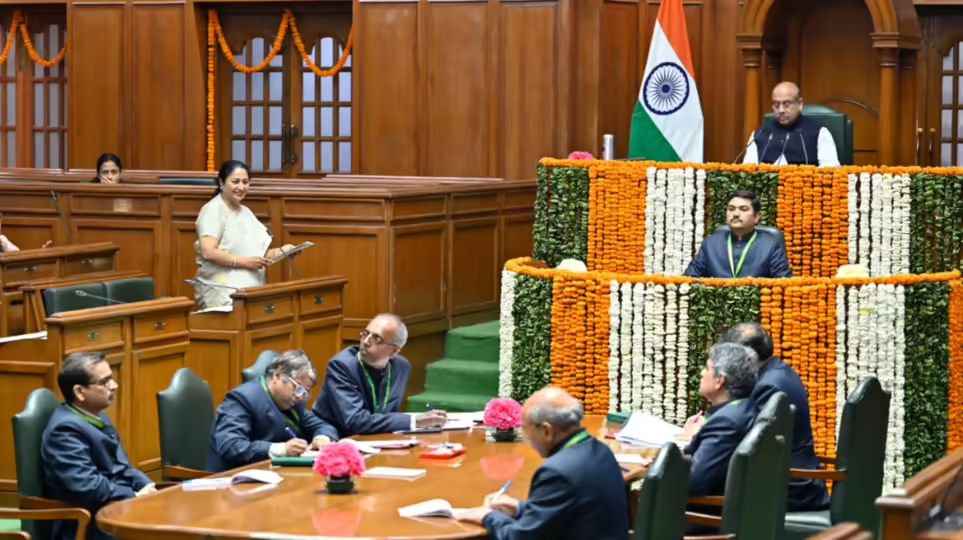Delhi’s Public Accounts Committee Initiates Scrutiny of CAG Findings on Liquor Policy Financial Discrepancies
Thu, 27 Feb 2025

The Public Accounts Committee (PAC) of the Delhi Legislative Assembly has commenced an examination of the Comptroller and Auditor General (CAG) report detailing financial irregularities in the implementation of the capital’s 2021-22 excise policy. The CAG analysis, tabled in the Assembly in March 2024, identified potential losses of approximately ₹3,400 crore to the state exchequer due to structural deviations and alleged procedural lapses. The PAC, chaired by BJP MLA Vijender Gupta, is mandated to assess compliance with financial accountability norms and review the audit findings for further legislative action. According to the CAG report, the now-repealed excise policy granted undue advantages to private liquor vendors through waived license fees, extended payment deadlines, and relaxed zoning rules. A key finding highlighted the waiver of ₹144 crore in license fees for vendors, a decision not aligned with the policy’s original objective of maximizing revenue. Additionally, the report noted a 500% markup on imported spirits, disproportionately benefiting retailers over government revenue streams. Data indicated that 85% of liquor shops were concentrated in high-income areas, contravening the policy’s equitable distribution goals. The audit flagged irregularities in the policy’s approval process, including the absence of mandatory inputs from the Finance and Law departments. The CAG observed that deviations from established procedures, such as reducing the number of dry days and permitting discounts on liquor sales, lacked legal or financial justification. These modifications reportedly contributed to systemic revenue leakage, with the excise department’s collections falling ₹1,700 crore short of projections in the policy’s first year. The PAC, comprising seven AAP, three BJP, and one Congress MLA, is expected to summon senior officials involved in the policy’s formulation and execution. This includes former Deputy Chief Minister Manish Sisodia and excise department personnel. The committee may cross-reference the CAG’s findings with a 2023 Delhi Lieutenant Governor’s report that alleged procedural violations and referred the matter to the Central Bureau of Investigation (CBI). The Enforcement Directorate (ED) has separately filed chargesheets in a money laundering case linked to the policy, citing alleged kickbacks and cartelization. Political tensions have surfaced over the probe, with AAP leaders defending the policy as a reform initiative to dismantle monopolies and boost transparency. They attribute the CAG’s revenue loss estimates to hypothetical calculations, asserting that actual collections increased by 27% year-on-year during the policy’s operational period. BJP representatives, however, have cited the audit to accuse the ruling party of institutionalizing corruption, demanding accountability for the alleged ₹3,400 crore deficit. The PAC’s findings could influence ongoing investigations by central agencies and judicial proceedings in the Delhi High Court, where petitions seek monitoring of the probe. Legal experts note that while the committee’s recommendations are advisory, they may strengthen enforcement agencies’ claims or prompt corrective fiscal measures. Historical data shows that 68% of PAC recommendations in Delhi since 2015 have been implemented, primarily in procurement and contract management sectors. Stakeholders anticipate the committee will focus on reconciling the CAG’s observations with the excise department’s internal records, including minutes of key meetings and financial approvals. The audit had criticized the lack of documentation for critical decisions, such as reducing the government’s wholesale stake from 35% to 12%. Transparency advocates stress that the probe must clarify whether procedural shortcuts were taken under ministerial oversight or bureaucratic failure. Economists highlight that the policy’s revenue model, which shifted Delhi from a wholesale operator to a license fee-based system, mirrors reforms in states like Karnataka and West Bengal. However, the CAG noted that Delhi’s framework lacked safeguards against cartelization, enabling 30% of licenses to be concentrated among entities with political linkages. Comparative data reveals that Karnataka’s similar policy maintained a 22% government revenue share, while Delhi’s dropped to 8.6%, raising questions about valuation accuracy. The PAC’s timeline remains unclear, though precedents suggest such probes average six to eight months. Outcomes may include recommendations for recovering lost funds, administrative reforms, or referrals for criminal investigations. The Delhi Assembly Secretariat confirmed that the committee has sought additional documents from the Finance and Excise departments, including cost-benefit analyses prepared during the policy’s drafting phase. As the probe unfolds, its implications extend beyond fiscal accountability, touching on intergovernmental relations and the autonomy of state audit mechanisms. The CAG report marks the first instance of India’s supreme audit institution directly scrutinizing a state excise policy’s financial outcomes, setting a precedent for future audits of regional governance models. With the AAP and BJP framing the issue as a clash between administrative innovation and procedural integrity, the PAC’s findings may shape public perception ahead of Delhi’s municipal elections. Independent analysts urge caution in interpreting the CAG’s observations, noting that excise policies nationally face challenges in balancing revenue generation with regulatory control. Data from the Ministry of Home Affairs shows that state excise revenues grew by an average of 15% annually between 2020 and 2023, with Delhi’s 27% growth under the contested policy outperforming the national average. However, the audit’s emphasis on procedural non-compliance underscores persistent gaps in aligning policy objectives with implementation frameworks. The committee’s review coincides with broader debates over the role of legislative oversight in curbing financial malpractices. Since 2020, PACs across states have examined 450 audit reports, leading to recoveries of ₹1,200 crore and 89 policy amendments. In Delhi, the outcome of this probe may determine legislative amendments to the excise act or stricter monitoring mechanisms for future fiscal initiatives.
